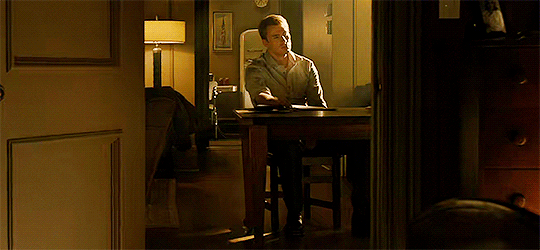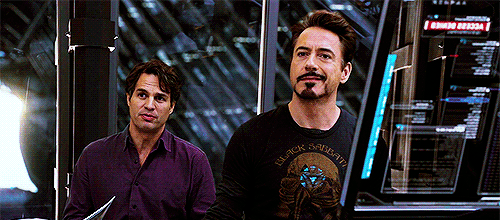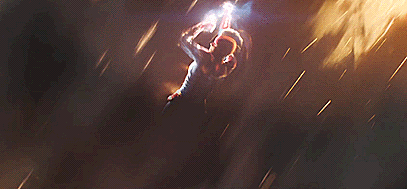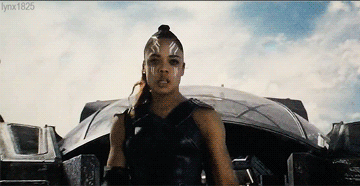#preferable to the times wade read fanfiction to peter before bed.
Text

#ask-spiderpool#main#spideypool#britney#bedtime stories...#preferable to the times wade read fanfiction to peter before bed.
2K notes
·
View notes
Note
What does a boring rainy day look like ffor the avengers? No missions, no paper work, just rain and nothing to do

Steve Rogers - Will either be catching up on paperwork or drawing. He’d prefer the second one, but there’s rarely not something that needs to be done. If he does get time to draw he’d sit by the window looking out over the city to do it.
Bucky Barnes - Will be cooking. He’d have been spending the morning looking up recipes and trying out different things.
Tony Stark - Is in the lab tinkering on things.
Sam Wilson - Is completely chilling out. He is sitting on the couch with a beer and watching sports and napping.
James Rhodes - Rhodey is frustrated that he’s trapped inside. He’ll probably take the opportunity to get some paperwork done.

Bruce Banner - He’s in the lab too. Not the same one as Tony. He’s probably going to be playing with a lab rat at some point.
Natasha Romanoff - She’s probably spending the day in bed with someone else. Fucking and napping. Only coming out to get some food before disappearing again.
Thor - Doesn’t really let the rain decide what he’s doing. If he wanted to be out he’s not exactly getting wet unless he wants to.
Clint Barton - Sitting up in the vents spying on people.
Wanda Maximoff - Wanda is flitting around from one thing to another. Listening to music. Going to cook with Bucky. Practicing the guitar. Using her powers to prank people.

Pietro Maximoff - Is attempting to run through the raindrops without getting hit.
Vision - Going through the internet to see if there is anything he missed. Probably getting distracted by fanfiction.
Scott Lang - Playing with Cassie if she’s around. Practicing his up close magic or drums.
Peter Parker - Is literally bouncing off the walls. He will drive anyone he goes near crazy.
T’Challa - Really wants to just curl up with someone and nap. Unfortunately, there is no rest for the king. Mostly meeting with people and signing things.

Loki - Is basically making everyone’s life hell. Interrupting things, asking inane questions he knows the answers too. He gets things thrown at him a lot, but it’s always his glamor.
Carol Danvers - Almost never has that kind of day. She’s like a postal worker when it comes to superheroing. Rain, hail or shine and if there’s nothing to do on one planet, she moves to the next.
Hope Van Dyne - No rest of Hope. There’s always Pymm Tech things to work on.
Stephen Strange - Mostly with his feet up reading or arguing with Wong.
Maria Hill - On the couch with Sam, drinking beer and watching sports. Yells really loudly when anything happens.

Phil Coulson - Tinkering on Lola or sorting through his Captain America trading card collection that he’s worked very hard to replace.
Nick Fury - Going to sit in the recliner watching sports too, but as soon as his feet are up he’s fallen asleep.
Peggy Carter - Probably trying to find something she could be doing. She gets quiet days but she hates them.
Brunnhilde - Drinking.
Wade Wilson - Watching the golden girls, sex, polishing his weapons.

#the avengers#Steve Rogers#Bucky Barnes#Tony Stark#Sam Wilson#James Rhodes#Bruce Banner#Natasha Romanoff#Thor#Clint Barton#Wanda Maximoff#Pietro Maximoff#Vision#Scott Lang#Peter Parker#T’Challa#Loki#Carol Danvers#Hope Van Dyne#Stephen Strange#Maria Hill#Phil Coulson#Nick Fury#Peggy Carter#Brunnhilde#Wade Wilson#avengers asks#headcanon#head cannon#queencaitlin135
313 notes
·
View notes
Text
This is a thing that I wrote a long time ago.
It isn’t fanfiction. It’s just fiction.
I will be posting here until I think of what to do with it.
FERNWEH
When Becca decides to shake off those shackles and get the hell outta Dodge, she doesn’t have many regrets. She won’t miss those late nights folding baby clothes at her local All Baby Needs SuperStore. She won’t miss her distant parents or her uninspiring classes for her useless degree. The only person she will miss is Jack.
Jack is stuck in the post-university, pre-real job wasteland of delayed adolescence. He doesn’t know if he is a socialist, or an anarchist, or just reads too many books. He stacks vegetables, he haunts libraries and he chases girls. But now his best friend is leaving town, and he doesn’t know if he can handle being left behind.
A story about growing up, leaving home, staying behind, sad bastard music and the people who make everything bearable.
Chapter One:
Becca
Truthfully, I can handle all of it. The cloying stench of mouldy socks and clove cigarettes. The scratchy, standard-issue woollen blanket that wasn’t quite enough to wade off the night-time chill. The oddly masculine snoring that would make any trucker proud. The clanking of pipes in the wall beside my bed that had me sat bolt upright on my first night, half convinced the ghost of Jacob Marley was coming for me, dragging the chains he’d forged in life. All of this didn’t bother me. Not really. But the weeping. I couldn’t handle the fucking weeping.
I’d been sharing a room in Berlin’s cheapest youth hostel for a week with Ilonka, from Hungary. Ilonka the weeper. And we aren’t talking about girlish sobs here, with intermittent hiccups. Oh no. Not Ilonka. Beautiful, heartbroken, weeping Ilonka. She didn’t do anything by half measures.
She’d told me her life story on the first night, over a Midori and lemonade in the bar downstairs. I was quickly coming to the realisation that this was how it was done. Nothing in Backpacker World got done without a bit of Dutch courage.
Ilonka’s story was that she’d come to Berlin to intern at one of those ridiculously trendy, ridiculously contemporary art galleries in Kreuzberg. Which made sense. With her extensive collection of very cute multi-coloured berets, long, lean legs encased habitually in skinny jeans, and her Franka Potente in Run Lola Run hair, she certainly looked the part. She made me feel inadequate every time she entered a room, and I was convinced that was at least half of what contemporary art was all about.
Which is why it was so disconcerting when halfway through her third Midori and lemonade, big fat tears began to slip down her perfect, Eastern European face, and into her drink, which she continued to sip through her straw, unperturbed. Then, without much warning, she keeled forward, and a high-pitched noise of distress began to rise from the back of her throat, not unlike that of an ambulance leaving the scene of an accident. The barman, cute and Irish though he may have been, gave us that ‘You’d better clear the fuck out’ look perfected by cute Irish bartenders the world over, and I bundled her upstairs before he summoned over the bouncer, who was significantly more intimidating.
Once I’d gotten her settled on her twin bed, she pulled herself together enough to relate to me the rest of the story. On her third week into her internship, she’d rung up her boyfriend, Kolos, back home in Budapest, and her best friend had answered the phone. Turns out they’d been screwing around behind her back for the last six months, and they had used Ilonka’s absence to move in together. Which you have to give points for, if only for the sheer brazen cowardice of it all. Were they going to keep up the charade until it came time to ask her to be the Maid of Honour at their wedding?
Ilonka was a wreck. She’d keep it together all day, every day at work, but as soon as she got back into the room she would just lie on her bed, crying inconsolably for hours, until she eventually, mercifully, fell asleep. If she wasn’t weeping, she was sitting on the window sill, where she had pried the window open, and was smoking her favourite clove cigarettes in flagrant disregard of our dorm’s no smoking policy, and my (fabricated) assertions that I was an asthmatic. She’d hold her cigarette in one hand and her mobile phone in the other, and yell obscenities in Hungarian to whoever was on the other end, in between puffs. I don’t speak a lick of Hungarian, but you can always tell an obscenity, no matter the language. It’s about the force behind the delivery. The venom behind the words.
The hostel had been chosen for its location, just off the Ku'damm, not for its internal décor or sterling customer service record. Which is just as well, because I’d been in cancer wards with more cheer; the grey-speckled institutional style walls hinting at the building’s previous life as an insane asylum perhaps, or at the very least a reform school. My polite request to move to a different room had been met with a coolly raised eyebrow, and an unconvincing promise that they’d see what they could do.
It wasn’t exactly what I had in mind for my first foray into the world of international travel. But it certainly made for interesting anecdotes for my emails sent back home.
I’d say things were going much better for me outside of the hostel, but that was a matter of some debate.
A few months back, embittered by my slow slide from promising Journalism student to person-who-straightens-cans-of-baby-food-in-a-budget-department-store-for-a-living, I’d stayed up until four in the morning one night, researching methods of escaping the monotonous retail hell that my life had become.
My unlikely salvation was with a company that would pay for me to fly to Germany to work as an Au Pair for a year. They’d even put me up in Berlin for a month, so I could brush up on the language, before they dispatched me to the family they would pair me with. All of those weekend evenings spent wrangling my neighbour’s kids to bed when I was sixteen had suddenly come in handy, and I had signed on the dotted line.
Of course, when I say “brush up on the language”, I mean learn from scratch. Of course. German had never been an elective at high school. I’d learnt Italian, although that data had almost been completely rewritten in my mind, replaced with an intricate knowledge of song lyrics by a particular favourite band of mine, who specialised in what my friend Jack liked to call “Sad Bastard Music.”
The total sum of my German language proficiency before my departure had been restricted to numbers one through ten, hello, good bye, thank you, and handful of random phrases one picks up after a lifetime of watching World War Two dramas, none of which were suitable for polite company. My knowledge of German culture was mostly restricted to a general appreciation for Daniel Brühl’s face, and a vague recollection of having read Faust when I was fourteen.
It was not until I took a seat on the first day of classes, that I realised what a grave mistake I had made. There was no way I would be able to wrangle children, even relatively small, uncomplicated ones, in four weeks time, with absolutely zero grasp on the language. It was impossible. Unfathomable.
Our teacher was a jovial fellow called Hans-Peter. He had the kind of white bushy moustache and knitted jumpers which made him look rather like a benevolent tug-boat captain, and kind eyes that encouraged students to take risks where they might otherwise have kept silent. He was a good teacher. I could tell. But there was no way in hell he was going to make me semi-fluent within a month.
Every classroom in the language school was named after a particular river in Germany. Our classroom, Donau, which I later discovered was the German word for the Danube, was right at the top of three dizzyingly uneven flights of stairs, in a converted attic where every inch of wall space was dedicated to laminated charts depicting a different German verb, and its various forms. It also had a broken radiator, which Hans-Peter would kick good-naturedly every morning when it failed to break the chill, before instructing us to keep our gloves on.
That’s the first useful German phrase I learn.
“Handschuhe auf!“ Gloves on.
The second:
“Jacken auf!“ Jackets on.
I’d always had a natural talent for scholastic endeavours. Which is to say, I’d really crashed and burned at university when I’d gotten through twelve years of schooling without really trying too hard, to find I actually had no idea how to study. But I’d always managed to scrape by on natural ability. I had no natural ability when it came to German. I was a babe in the woods. And I definitely needed to study.
Being in a foreign country where you don’t speak the language is a little like being a newborn lamb. You stumble a lot, and you’re vulnerable as hell, but everyone finds you pretty damn adorable anyway, for the most part. But for someone who has always been really good at things, it is the ultimate exercise in humility. Suddenly, you’re unable to do even the most simplest of things. Order a coffee. Ask for directions. Make an effusive apology to the angry looking guy you bump into on the train.
It had taken me five whole days to work up the necessary courage to approach even a McDonalds counter. I practiced the order in my head, as I waited in line.
“Ein Happy Meal, bitte.” One Happy Meal, please.
I didn’t think even I could fuck that up. I tried to anticipate what questions they would ask me, in which order. Would I like a toy? Would I like ketchup?
When they asked me if I wanted mayo or ketchup on my fries, the unexpected option made me answer in the affirmative, without specifying which I preferred, pissing off the harried-looking girl behind the counter in the process. I could feel my cheeks flush with embarrassment, and I backed away from the counter, waving my hands and butchering an apology in my pidgin German.
I never went back to that McDonalds.
Like a diamond in the rough, I found a T-Mobile payphone on my way back to the hostel and I fed about ten euro in change into the machine until it finally connected me to Jack’s mobile. It rang out, and went to voicemail, and instead of leaving a message, I hung up the receiver, and burst into angry, embarrassed tears. I didn’t get any change back, either.
Wiping my face clean with the sleeve of my coat, I hurried back to the hostel, before I could make an idiot of myself in some new way. Still hungry, I raided the vending machine in the lobby, and sat on my bed eating out-of-date chips until Ilonka had returned. She took one look at my tear-stained face and unsatisfying dinner and bundled me into my coat and took me out to an Irish Pub around the corner for a pint of Guinness and something called a Blarney Burger.
“It will not always be so,” she reminds me sagely, as she steals a chip from my plate. And for a little while there, Ilonka is my hero. When I grow up I want to be just like her. We sing Cranberries songs together, and make the acquaintance of some chipper blokes from County Clare who are, of course, enamoured with Ilonka’s ethereal Eastern European beauty, and keep us plied with enough black stuff that I quite forget about the dizzying regret that has been eating me away inside for days.
But later that night, the weeping starts again, and it chips away, slowly but steadily, at my newfound regard for her. I get up for class early the next morning, head still throbbing from the previous night’s excesses, and leave her a note on her bedside table.
“It will not always be so.”
9 notes
·
View notes